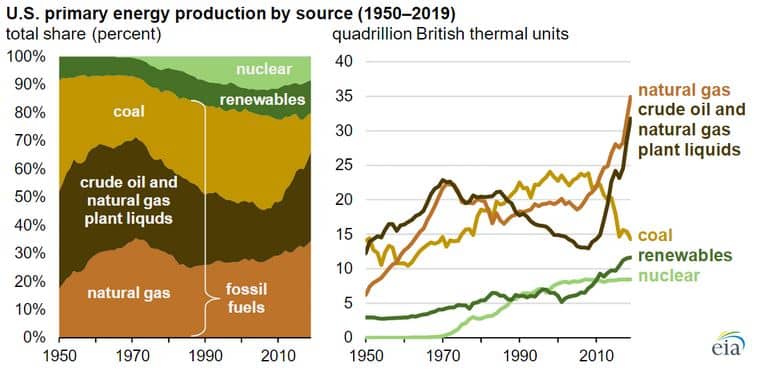Fossil Fuels Account for 80 Percent of U.S. Energy Production, Consumption: EIA

The share of U.S. energy production from fossil fuels peaked in 1966 at 93 percent, but production from nuclear power and renewables have also risen. Fossil fuels have accounted for about 80 percent of U.S. energy production in the past decade, according to a Sept. 14 report from the U.S. Energy Information Administration.
- In 2019, fossil fuels accounted for 80 percent of domestic energy production and 80 percent of domestic energy consumption.
- Since 2008, U.S. production of crude oil, dry natural gas, and natural gas plant liquids has increased by 15 quads, 14 quads, and 4 quads, respectively, and therefore have more than offset the decrease in coal production, which dropped to 10 quads since its 2008 peak.
- In 2019, U.S. energy production surpassed consumption for the first time since 1957, while exports exceeded imports for the first time since 1952.
- U.S. energy net imports as a share of consumption peaked in 2005 at 30 percent, and dropped below zero in 2019, but many regions of the U.S. still import significant amounts of energy.
- The share of U.S. energy consumption derived from fossil fuels has dropped from its peak of 94 percent in 1966 to 80 percent in 2019; the total amount of fossil fuels consumed in the U.S. has also fallen from its peak of 86 quads in 2007.
EnerKnol Pulses like this one are powered by the EnerKnol Platform—the first comprehensive database for real-time energy policy tracking. Sign up for a free trial below for access to key regulatory data and deep industry insights across the energy spectrum.
ACCESS FREE TRIAL